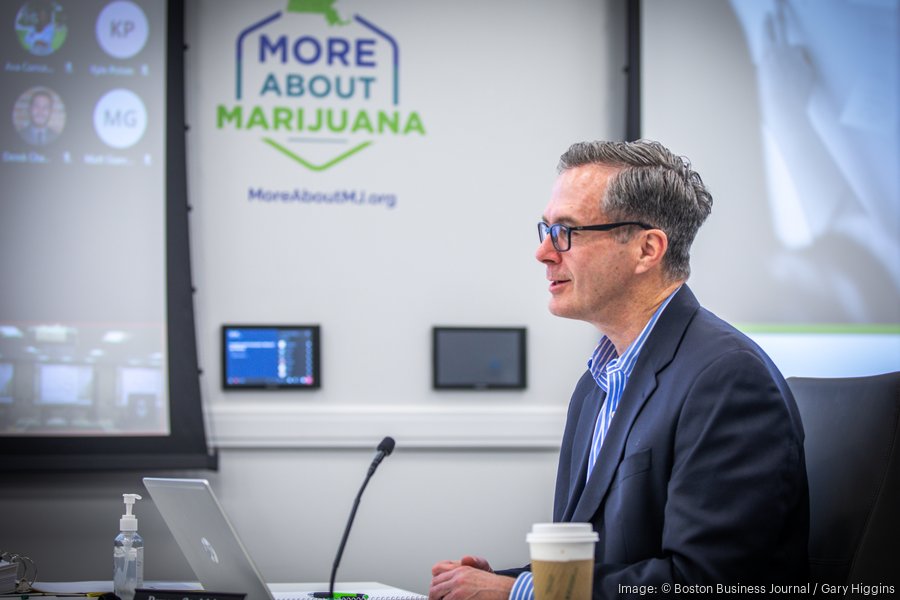
As they explore ways to either shore up or restructure the Cannabis Control Commission, lawmakers heard Wednesday from outsiders who suggested that the Legislature first be clear about its goals for the agency and then allow the best governing structure to emerge from there.
Frustration with the slow pace of regulatory changes from the CCC, a series of headline-grabbing internal conflicts and a plea from the inspector general for the Legislature to intervene at the "rudderless agency" and revisit its "unclear and self-contradictory" 2017 enabling statute combined this summer to compel the Cannabis Policy Committee to start considering a response plan.
WATCH ANYTIME FOR FREE
Stream NBC10 Boston news for free, 24/7, wherever you are. |
The committee heard a litany of complaints about the business and regulatory environments for marijuana companies during a hearing in October and on Wednesday turned to administrative law experts, cannabis sector consultants, a former regulator from Maine, and a Canadian public health professor to continue mulling the right approach to a situation at the CCC that numerous lawmakers have called a "trainwreck." House chair Rep. Daniel Donahue has said he "foresees a legislative path forward."
"When the Legislature created the CCC in 2017, it was truly charting unknown territory. And today, we have many guideposts available to us as we revisit the original enabling legislation, including the experience of stakeholders of the now-established industry. Committee members heard about the day-to-day experiences of the stakeholders at our October meeting. At this hearing, we will build on that testimony with the aim of exploring reforms that will allow the CCC to fulfill its mission with minimum continued legislative oversight or intervention," Donahue said at the start of Wednesday's hearing.
Get updates on what's happening in Boston to your inbox. Sign up for our News Headlines newsletter.
Erik Gundersen, who helped lead implementation of legal cannabis in Maine until he stepped down as director of Maine’s Office of Cannabis Policy two years ago, talked the committee through pros and cons of two possible models: the current "commission model" in which a board of commissioners appointed by various state leaders oversees the agency, and the "executive director model" like Maine uses, in which leadership is centralized in one appointed official who runs the agency and reports to a high-ranking elected officeholder.
Gundersen, who now works as a consultant to states and tribal governments navigating the cannabis world, said two-thirds of states with legal cannabis (including four of the last five to legalize) use the executive director model while Massachusetts is part of the one-third using the commission model. He said Maryland "transitioned from the commission model to an executive director model, following similar legislative discussions."
"It's essential to recognize there's no single right answer. Instead, the committee should thoughtfully prioritize its objectives for the Cannabis Control Commission, allowing for an ideal governance structure to emerge naturally," Gundersen said. He added, "Moving forward, what matters most to the committee -- whether accountability, transparency, independence or adaptability -- requires balancing trade-offs within either the executive director model or an adjusted commission model."
Renée Landers, a professor of administrative law at Suffolk University Law School, told the committee that one of the first things she always tells her students is that "there are no right answers."
"There are a variety of choices depending on what the goals are. And second is that regardless of the structures or the government's constraints imposed on any kind of activity or government entity, often it comes down to who the people are," she said. "Are the people working within those structures with an attitude of good faith and adherence to the mission and adherence to that accountability to the public? Or are other issues diverting them from that task?"
Whether lawmakers opt to stick with some type of commission model or switch to an executive director model, Landers said it needs to be made clear to the agency that everyone who works there is to row in the same direction.
She said she read through the draft governance charter that was the product of months of mediation between CCC commissioners and staff, and said she picked up on "a little bit of a setup of an us-versus-them kind of scenario where the commissioners are the commission, and then there's the agency staff, the administrative staff, including the executive director and the staff."
More on the Cannabis Control Commission
"Disabusing people of that notion is really important," Landers said. "Regardless of whether you stick with the commission model or move to some different kind of structure, the agency is the agency, one whole agency, and should be devoted to a singular mission or sets of goals that the agency is trying to achieve and not have this kind of tension and competition between the commissioners and the agency."
In addition to encouraging lawmakers to think about lines of accountability when commissioners are appointed by a handful of officials rather than one singular person, Landers also pressed the committee to think about the plusses and minuses of the current requirement that each commissioner bring a specific set of expertise or experiences to the CCC.
"I'm not arguing against having all those points of view and those experiences represented in the decision-making process of the commission, but I think that it sets up this idea that these commissioners could sure be advocates for that point of view, instead of like, 'We're all in this together trying to create a comprehensive and cohesive regulatory scheme,' " she said. Landers added, "I think there needs to be that recognition that it's the mission of the agency that these people need to be pursuing, and not these separate, perhaps, advocacy goals of those components of the stakeholder community."
Practically every person who testified before the committee Wednesday made a point to emphasize that they don't view the Legislature's rethinking of the regulatory structure for cannabis as an admission of failure or something out of the ordinary, particularly given the fast-moving cannabis industry and the lack of federal government involvement.
"Change has been essential in every jurisdiction. I don't know any jurisdiction that has got it right out of the gate. ... I always say that for tobacco, we are still changing the regulatory structure a century in. And so I don't know any jurisdiction that's looked back and say, 'Well, we nailed that.' So revision, change, is a part of the process," David Hammond, a professor in the school of public health at the University of Waterloo in Ontario, said. "And I think what you're doing, as I understand it, which is to take lessons from what's happened, is fundamentally important. And getting over the fact that there are mistakes made, and instead learning how to make the process more efficient."




